Interview: Dr. Saul Griffith, Electrification Expert!
At the dawn of civilization's Electric Age.
Dr. Saul Griffith, a world-renowned expert on electrification, is the founder of nonprofits Rewiring America and Rewiring Australia as well as over a dozen technology startups over 20 years. He writes on Substack at
.In the interview below, this writer’s questions and comments are in bold, Dr. Griffith’s words are in regular text, and extra clarification (links, etc) added after the interview are in bold italics or footnotes.
I’m excited to speak with you today! You've done incredible work that has contributed to the huge global efflorescence of electrification we're seeing today. With Rewiring America and Rewiring Australia, you have created key load-bearing pieces of infrastructure for major economies' electrification transitions.
Thank you!
One overall thing that I've observed is that in the last 10 years, globally, electrification seems to be going way faster than most projections anticipated, thanks in large part to the huge surge of new batteries, EVs, and other electrification technologies from China. Simultaneously, we've seen the politics of it really sour in a lot of Western countries. Especially, sadly, my own, the United States, where we just passed that nightmarish budget that sabotages the country and drives electricity prices up and does a whole bunch of other terrible things.
So worldwide, what's your overall picture of where we are compared to where we need to be?
Well, you started your question with the statement that it's going much faster than you think, the electrification. That might be true, but it's not going nearly fast enough to hold us to one and a half or two degrees Celsius of warming.
I believe the project is going pretty well. Civilization, as represented by all nations’ contributions, is electrifying faster than we thought we might. Not as fast as we need to.
But the good news is we pretty much have the full technology suite to largely live the lifestyles we have been living, but live them all electrically! The good news is, technologically we are on track.
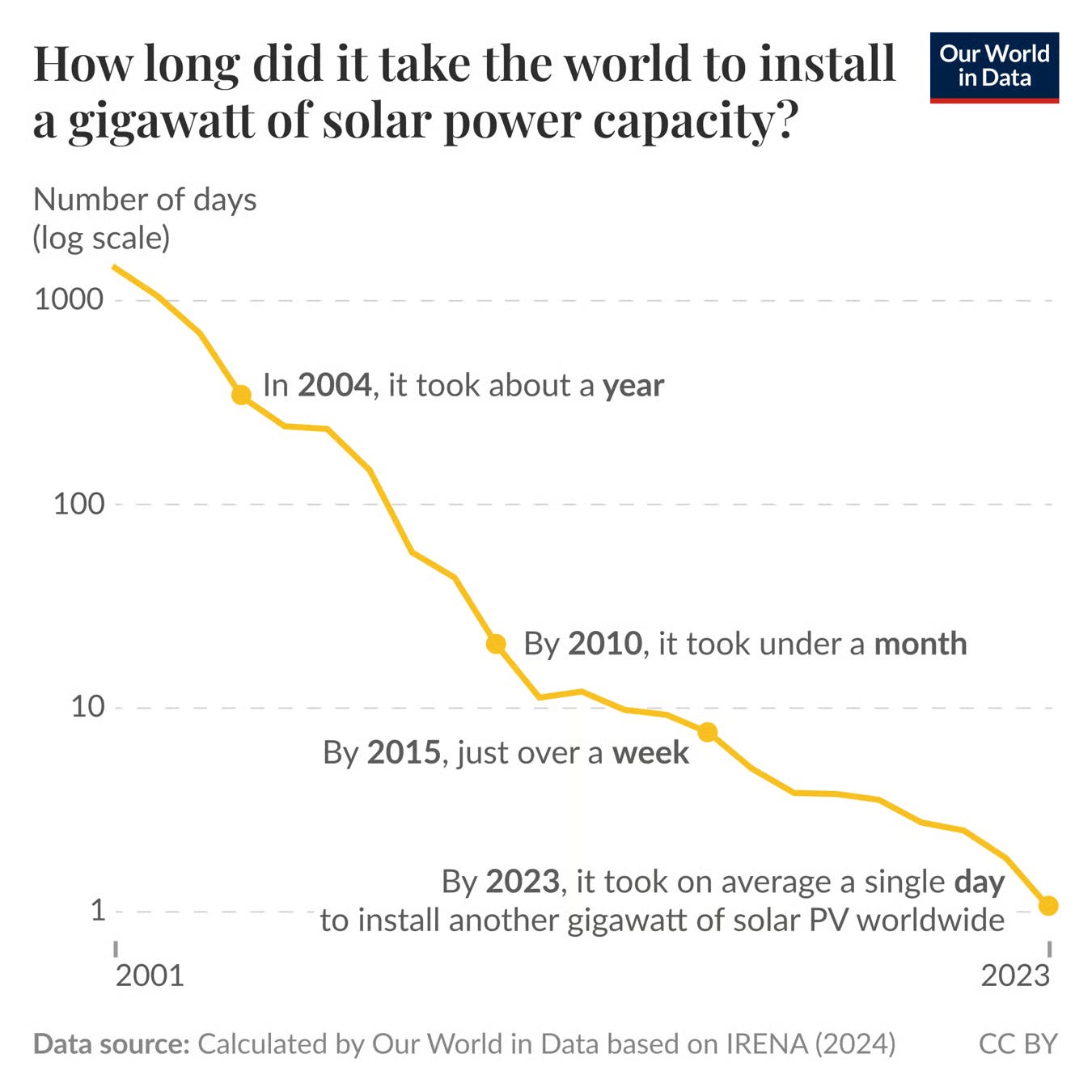
If you look at the curves of production of solar and production of wind over time, as long as we keep increasing the production rate at the rate we have been, there's a reasonable chance that we're producing enough solar, enough wind, enough of the various technologies we need that by 2038, 2040, the whole world is electric. So it's still conceivably on track.
Then, partly due to the success of that, we are having countries who are threatened by electrification, because the fossil fuel components of their economy are causing a lot of trouble. This is what's happening in the West. You know, America is the canonical example. It looks like America would prefer to align itself with Saudi Arabia and with Russia than to align itself with the rest of the world in efforts to decarbonize. And that's a very troubling politically motivated change. The gas and oil industry in the US has done a spectacular job of out-thinking the climate movement, which got a little bit too comfortable with the successes of the Inflation Reduction Act.
The silent partner in this administration is the oil and gas industry. And it appears that they're getting not just everything that they asked for, but even more.
That is true. If I narrowed my lens to just American news, I'd be terribly pessimistic right now. “Favoritism” is not a strong enough word for how the current U.S. administration is treating fossil fuels. They’re literally posting online about how beautiful coal is and how fossil fuels are glorious while imposing ridiculous amounts of red tape, adding more complex and biased permitting, on the clean energy sources that are the ones that actually supplied more than 90% of new capacity built last year. It's not so much a thumb on the scale as a hammer to the scale, a destruction of any idea of responding to real-world energy data in favor of just doling out more and more benefits to politically connected industries.
Yeah. I think it's a challenging thing to say.
I moved to America in 1998 to get my PhD at MIT. America has been extremely good to me. The America that I went to in 1998 believed in science. It believed in technology. It believed in reason. It wasn't perfect, but it was stumbling towards good climate policy. And that America, at least for the short term and I'm unclear for how long, that America is dead.
We have an administration that is openly contradicting established science. Up is down, east is west, north is south. Not just in energy, this is in a whole bunch of domains. If the science conflicts with the ideology, then the administration has decided to go with the ideology, not with the science. It's very troubling to me, not just for climate reasons, but for much larger reasons, that America is anti-science.
I think science must be open by definition, science is almost global by definition. You can't have different countries believing in different science. The physics works the same in China as it does in America. Chemistry works the same in Australia as it does in Canada.
I mean, I don't know. It's quite troubling. The question is, after the Trump administration, can there be sufficient progress made? I'm not sure. To be honest, I'm a little bit frustrated.
Through my work with Rewiring America and Rewiring Australia, we often lean on, “Look, the economics are now working!” There are whole countries where the country's economic interests are with electrification. Every household in Australia would save $4,000 or $5,000 a year going all-electric, vehicles, water heater, stove, oven, everything. Same in New Zealand, same in countries like Korea, most of Africa.
So the economics are turning in favour, but not by such a huge margin that, if you subsidise fossil fuels and you have misinformation around them, that fossil fuels can't keep going. Unfortunately, even though the economics now works everywhere, it was always naive to believe we were Homo economicus and making perfectly rational economic decisions. And in fact, one version of Homo economicus is, if it's in your interest to lobby for and pervert democracy because it'll help you sell more of your fossil fuels, obviously that is the choice that is now being made by the oil and gas industry.
The differences between the Australian and the American experience in this are really, really fascinating.
I thought that you had a very, very good way of framing this from a political perspective, which is “Make Electricity Cheap Again.”
So: why are the political economics of rooftop solar so much better in Australia than in America? What is being done right in Australia that isn't being done in America that is making electrification advance faster?
Good question, but before we get to the underlying reasons of why rooftop solar is cheaper in Australia, it's important to think about broadly why electricity needs to be cheap.
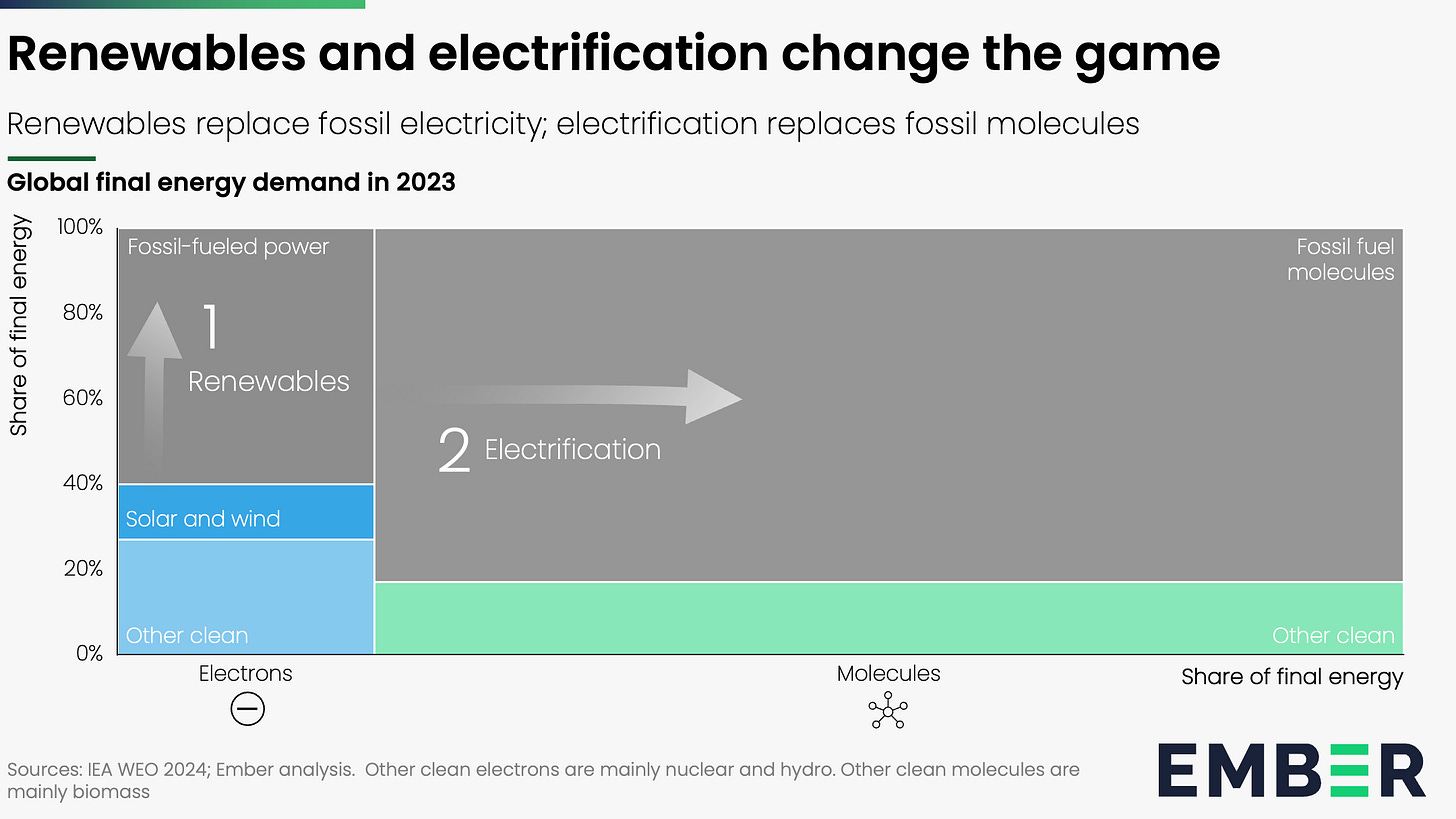
I think about electrification in terms of energy price arbitrage. There is a price of electricity where a heat pump will beat natural gas at heating your home or heating your hot water. There's a price at which electricity in your electric vehicle will beat the price of gasoline to fill your gasoline powered car.
And those are the economic tipping points. Either the price of electricity needs to be low or the price of fossil fuels needs to be really high for electricity to work [economically].
Australia is at the end of the world supply chain. We don't produce much of our own oil. We do produce a lot of gas, but mostly for export. Our oil and gas are relatively expensive compared to the price the U.S. pays. We pay maybe 20 or 30% more for gasoline.
On the other hand, a lot of Australians now can get an enormous amount of electricity very cheaply from solar energy.
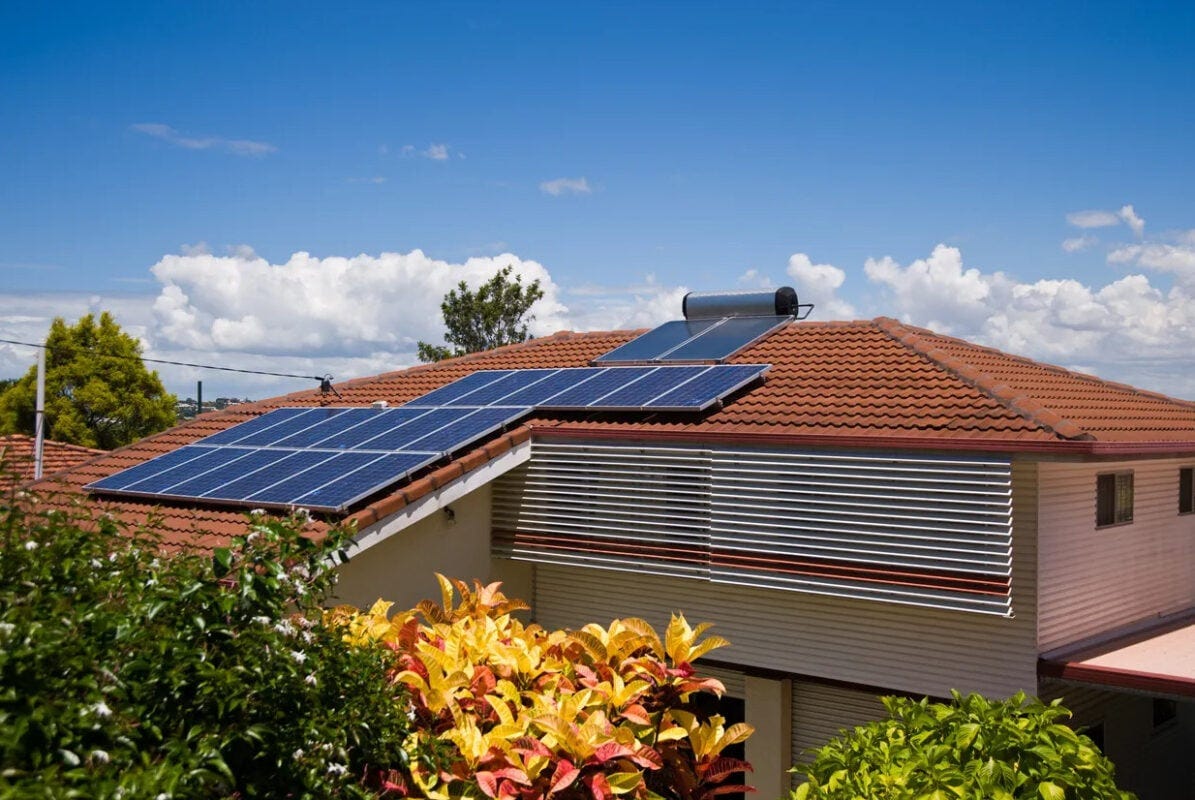
Just so you know, I'm trying to on-the-fly express all of this in U.S. dollars.
Okay, no worries. I'll link to your in-depth posts for more background so people can dig into the stuff you've written at length.
Okay, great.
So Australians pay about 20 cents U.S., $0.20 per kilowatt hour for electricity from the grid, which is actually a bit higher than you pay in the U.S. on average. In California, you pay more, in Idaho, you pay less.
But rooftop solar in Australia installs so cheaply on the roof that it gives electricity to the household at about two or three U.S. cents, $0.02 or $0.03 per kilowatt hour.
If you can get your electricity at two or three U.S. cents a kilowatt hour, it means driving a car on that electricity is 10 to 20 times cheaper than driving a car on gasoline or petroleum.
Heating your hot water is half the price.
Heating for cooking is one quarter the price.
Fundamentally, it changes the economics in profound ways when you get this very cheap rooftop solar.
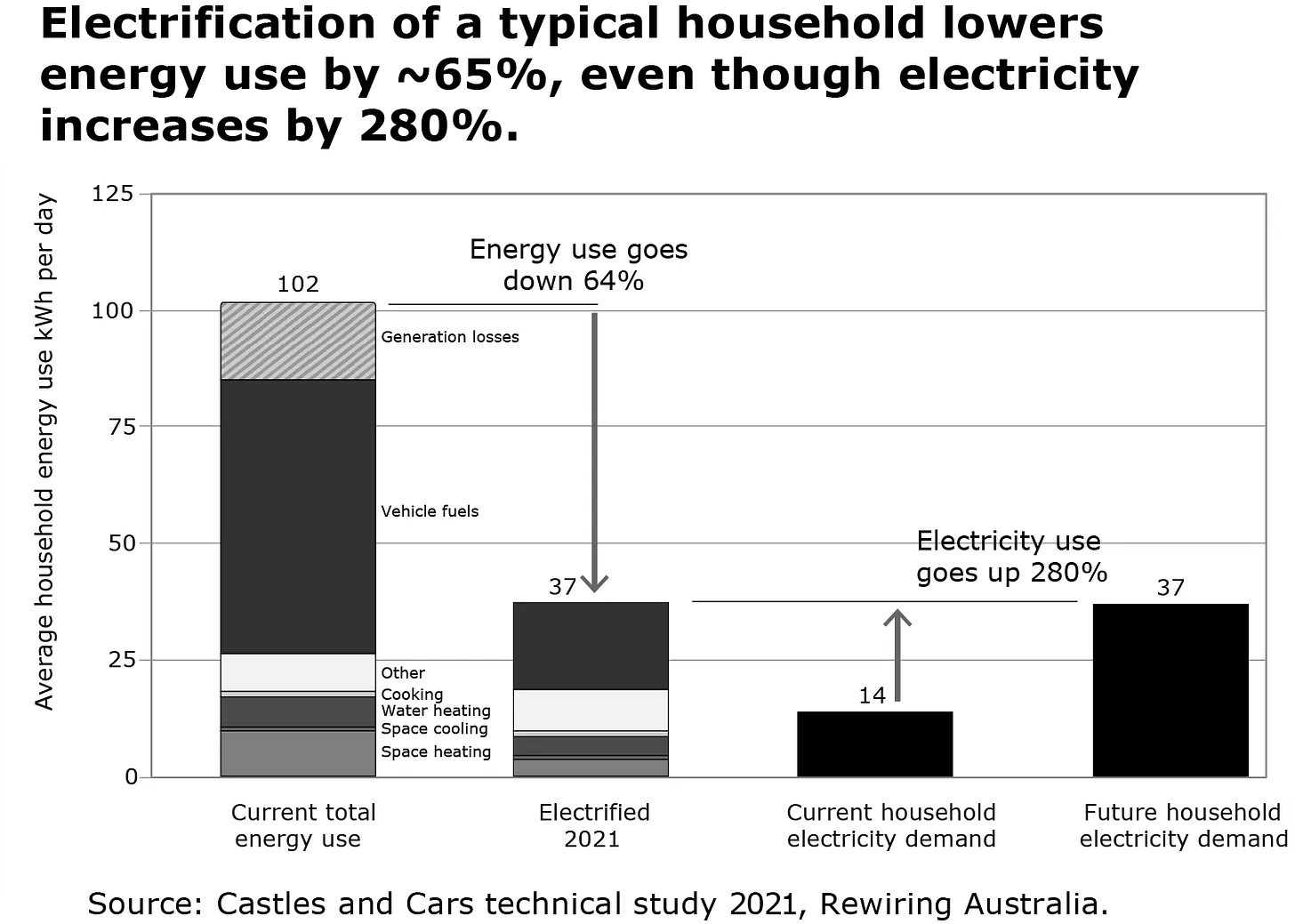
Now, a lot of Americans will say, oh, but that's unfair. Australia is really sunny and hot, it's famous for being sunny and hot. But in fact, most of the Australian population lives in a climate that is similar to the climate from Los Angeles through to Northern California, or from Florida through to Northern Carolina. Half of the American population could also be experiencing this situation, that solar is so cheap in Australia that nearly 40% of our households, I think over 3.5 million households, now have rooftop solar. The penetration in the US is just over 1%.
So that's the difference. And the reason is in the US, rooftop solar installs at a price that's more expensive than the grid. In Australia, it installs a price that's a fifth or a tenth of the grid, so it sells itself.
Because of that, the politics in Australia around electrification is less toxic than it is in the U.S. 40% of the population, 40% of households have had this good experience of really dirt-cheap electricity making their cost of living lower!
I think we did a good job in the US of advocating for and building policies that supported the electrification of everything, but we forgot to make electricity cheap.
You need both of those things to be true for people to have a positive experience of electrification. Until it's a positive experience economically and comfort-wise and convenience-wise and everything else, it's going to be hard to sell to the American public, particularly when the American public is so ideologically divided.
So rooftop solar is much cheaper in Australia than in the U.S. One of the reasons is because you guys can buy the latest solar panels from China, at least more than the U.S. can with the current tariffs.
But a more important reason is the permitting, right? You guys have instant permitting that the tradesman can do, which the U.S. doesn't have.
Yeah, so the problem is not the tariffs. The problem is not the price of the technology. The problem really is a problem with soft costs.
Yeah, yeah.
The actual module, the actual piece of... So let me put all this in perspective.
On average in the US, rooftop solar installs at $2.50 a watt.
If you're unlucky and you live in San Francisco like I used to, it was $5.80 a watt.
At my house in Australia, I'm installing a 16 kilowatt system this week that is going to cost me about 50 US cents per watt.
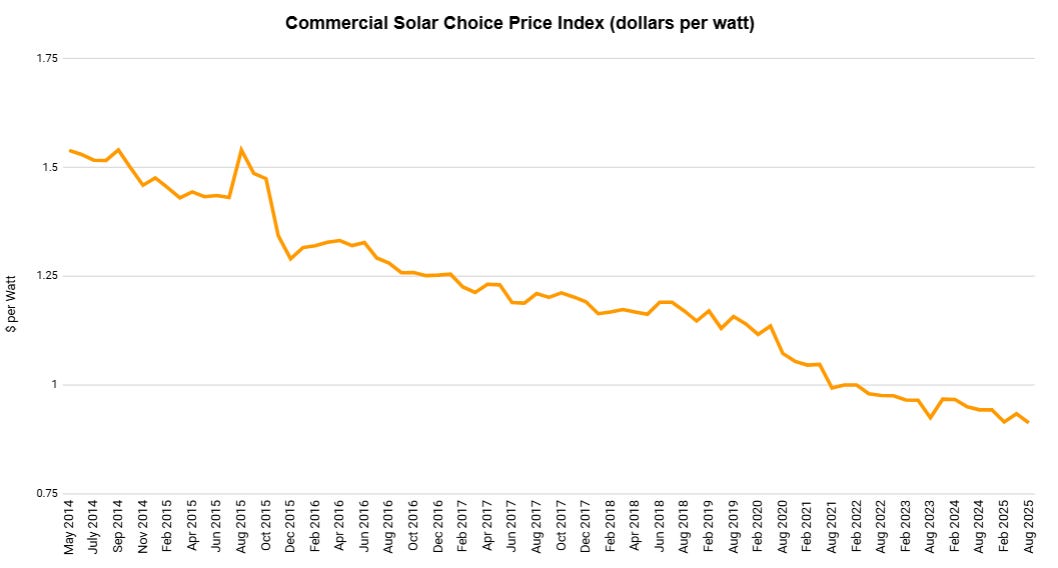
Wow!
Now, of that, only about 10 cents a watt is the cost of the cells and the modules and the inverters.
Okay.
So even if you had a 100% tariff on China, it can't explain even a small fraction of the difference in price. Because that would just mean a difference of of $0.10 or $0.20, not enough to account for that $2.50. So 5% of the price to 10% of the price.
The hardware cost is irrelevant to the problem in the U.S.!
Yes, it would be better not to have tariffs on solar. Yes, it would be in the nation’s economic interest. This is a commodity product. the company that's manufacturing it is making a tiny amount of money. Over the lifetime of the solar, all of the money to be made is in finance. So there was a win-win here that was possible for America. You let China make the solar, you install it, it uses U.S. labor and then U.S. financing, and so it creates a whole bunch of economic activity in the U.S. and everyone's a winner. That was possible.
But now you have to look at: why is it so expensive in the U.S.? Part of it is, in Australia, we compelled the utility. The utility is not allowed to refuse you from connecting to the grid and they have to do their best efforts to get you connected in less than 48 hours.
That's awesome!
In the US, the interconnection can take as much as 90 days.
In addition, the permit can take as much as 90 days!
In Australia, we have an application on your phone, and the tradesperson — we call them tradies, you call them contractors — the tradie can literally over the phone get a permit to put the solar on your roof.
That permit would cost thousands of dollars in the US and take, I think, another 60 days on average to get.
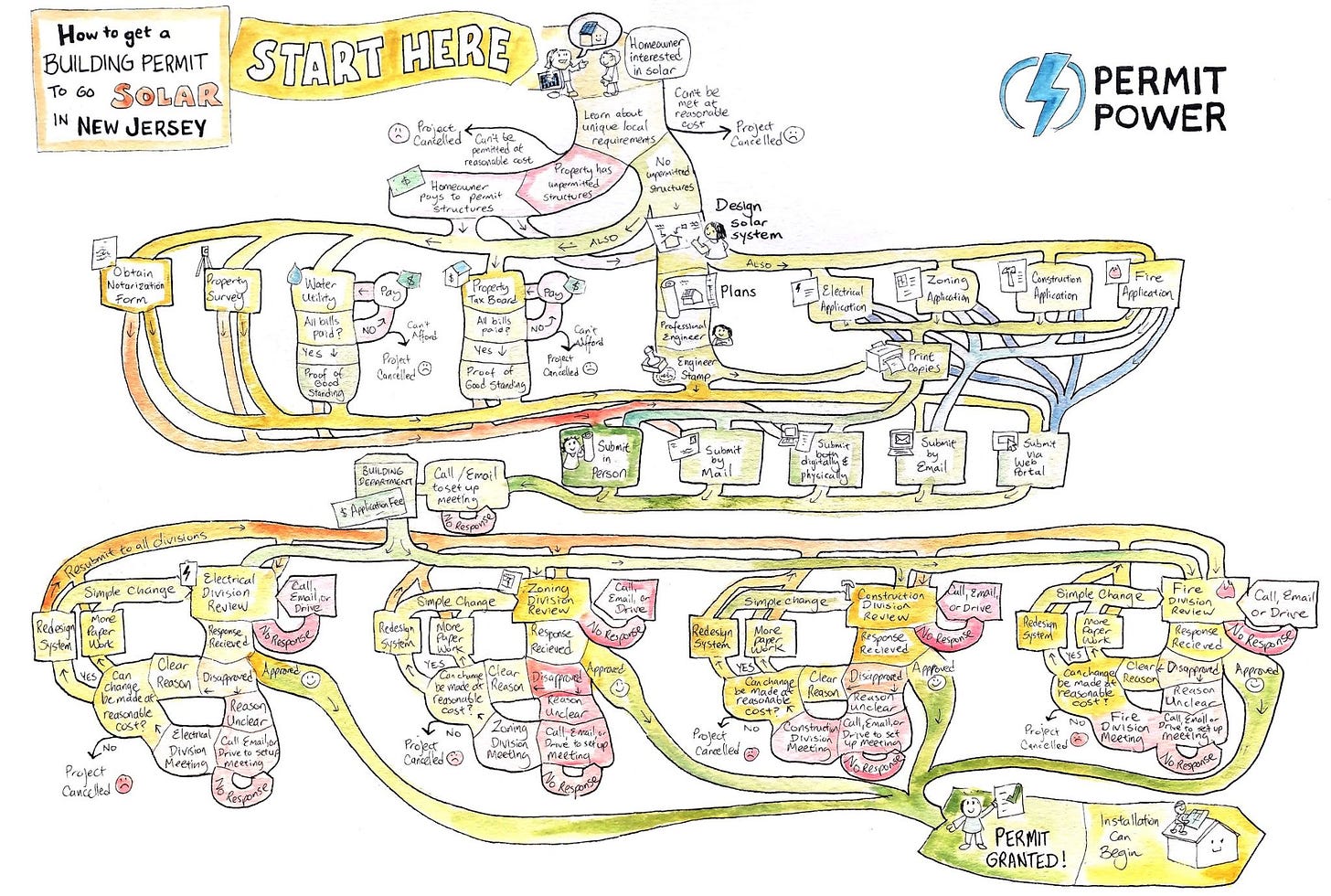
That doesn't explain everything. Also, the Australian government created training programs to certify the workforce, so that the workforce would be guaranteed to do a high quality job. This indirectly lowers the cost of the liability held by the contractor and so the liability costs are lower than in the U.S.
If you can install, get a permit in one day and you've got a well-oiled installation machine, you only need to roll the truck once. The cost of the solar is proportional to the number of times you have to roll the truck. In Australia, you only need to roll the truck once. That's the day that the contractor turns up, puts the solar on your roof, connects it to the grid, and then maybe one in 10 or one in 20 times, a second truck is rolled to go and inspect and make sure that the job was done and guarantees the quality.
In the U.S., there's a truck that has to roll to get the permit.
Then there's a truck that has to roll to put the solar on.
Then there's another truck that has to roll to connect to the grid.
Then there's another truck that has to roll to do an inspection.
That's four or five truck rolls where there really only needs to be one. And all of those truck rolls, that's a person getting paid $35 an hour, that's a F-150 that has to be operated. All of those truck rolls cost you money.
So it's a combination of the permitting, the interconnection, the liability, and just the logistics of the truck rolls, which are all increased by your U.S. inspection requirements. All of those things add up and they dwarf the component which is the price of the actual hardware.
That, unfortunately, is why America can't have nice things.
And when I say nice things, I mean really, really cheap electricity!
Most Americans really, really deeply do not understand this. Even people in the climate space, they just really don't.
Yeah. You really have to show everyone the numbers and the fact that it's working in Australia.
And I think what surprises most people is that even if electricity from the grid was free in America, if you could generate from nuclear fusion for free, you can't get it to the house for less than the cost of Australian rooftop solar! Your cost of transmission and distribution to get it there costs more than just putting solar on your roof in Australia.
“If free fusion energy magically appeared tomorrow it could not deliver electricity to your house cheaper than the current (and still falling) price of rooftop solar (in Australia).”
—Saul Griffith on Substack
That still amazes me! That is absolutely incredible.
And that really, I think, can grab people's attention in realizing just how amazing this Electric Age that we’re on the verge of will be.
You're saying just the utility costs of building the power transmission lines and the substations and all that, just that, even if the electricity generation itself is free, adds up to more than rooftop solar!
Yeah. That's round figures. Half the price of American electricity is the logistics of getting the electricity from where it's generated to where it's used. If you eliminate those logistics because it's on your roof so you're generating where it's used, then you eliminate all of that cost.
That is amazing.
Bill McKibben had a really great article in Mother Jones on this. He was like, “why the hell do the Chinese and the Germans and the Australians get to have this really cool thing and we don't?”
This is an unbelievable step forward for humanity. I think that you're totally right that we should frame this in the U.S. as “you should be allowed to have the cheap electricity that the rest of the world gets to have,” not as “you should make a sacrifice for the climate.” This is a really cool technology that people are keeping from you!
This should be politically neutral. Like, “I want my guns, my God, and my solar.” You know, “Get the government off my roof!” Give me cheap solar.
This should work in red states. This should work in blue states. It's just cheaper, better economics, and better electricity.
One emerging political movement in the U.S. is the idea of the Abundance Agenda, which is an attempt to sort of form like a sort of cross-party coalition to reduce soft costs, especially permitting costs, on a bunch of important stuff we need more of, from solar to public transport to housing. What do you think of that?
I remember doing an interview with Derek Thompson about my book Electrify five years ago. During that interview, I used the word “abundance” and then he said, “Oh yeah, this is like an abundance agenda!”
I don't know whether this is the origin of the term, the abundance agenda. It might be, but you'd have to ask Derek. He may have already been thinking it. I remember really seeing eye to eye with Derek. And of course, he then wrote the book Abundance with Ezra Klein.
This was the origin of the founding of Rewiring America. I was like, “Why isn't anyone telling the positive case for why all the climate solutions that we have make our lives better?”
So we started from an abundance agenda, like, “We can do this. America can do this. America can live a better quality of life than current American life and do it all electrically and have healthier outcomes, lower energy cost outcomes.”
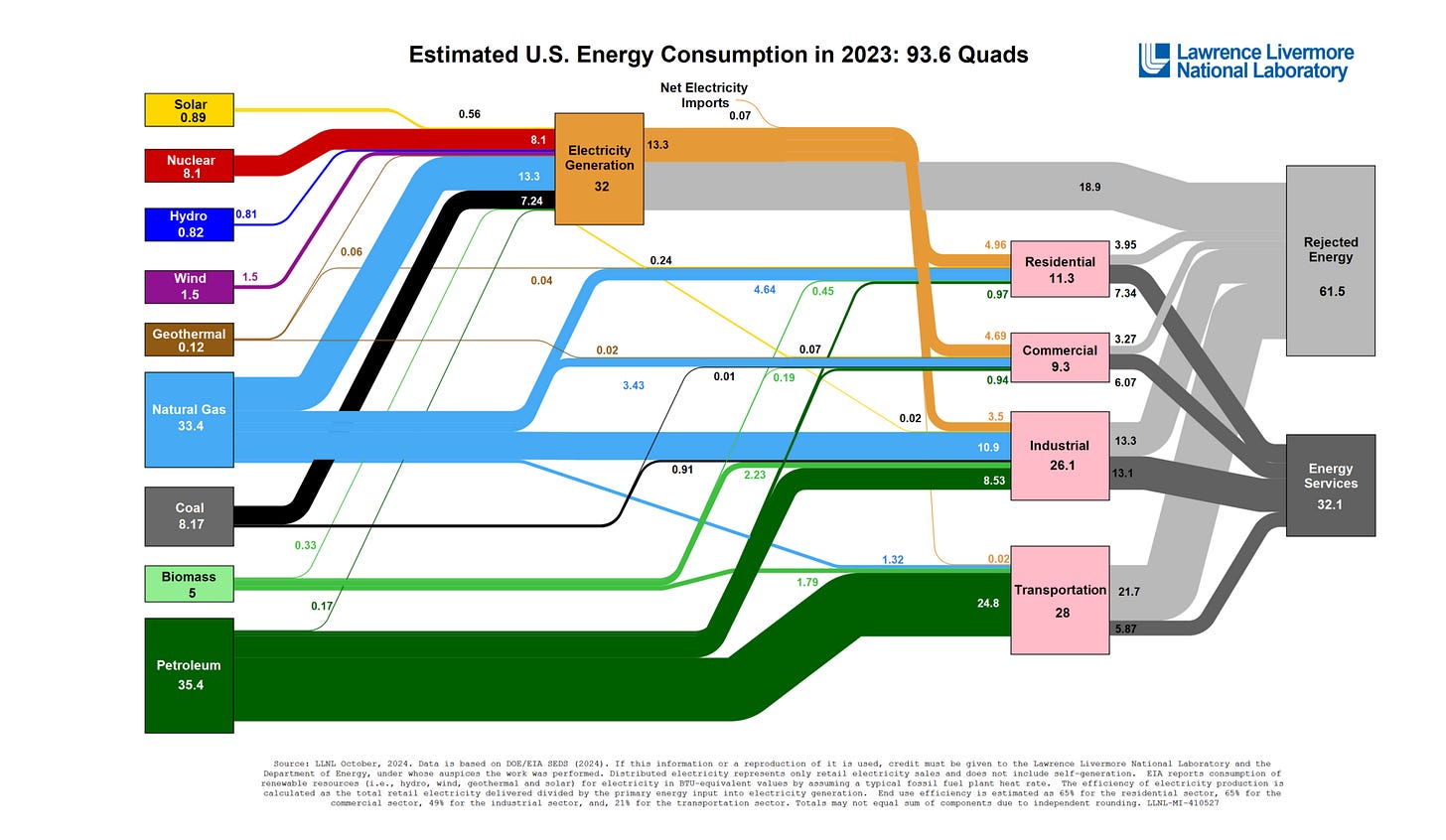
Totally doable. In that sense, I've always been on board with the abundance agenda.
Weirdly enough, my stepmother-in-law is an expert in state capacity. She's part of the abundance agenda movement. She was one of a couple of people who started the United States Digital Service [under Obama], the office that later got turned into DOGE. And back then, they were trying to build these government digital service platforms so that you could make the operations of local, federal and state government much more efficient.
Squarely in the abundance agenda is making the bureaucracy easier so you can make rooftop solar cheap, and so I share all of that with the abundance agenda.
I'm worried just because of the polarization of the U.S. and watching the launch of the book Abundance that it's already become a polarizing idea. Even within the left, there is the left that doesn't want abundance and the left that does. The politics of the United States at this point is so diabolically polarized that a really good idea, which is more efficient government making things cheaper and better, is a contentious idea. And that's really all these people are arguing for! We should all want that. But I worry that because the idea came from the left, that it's divisive, which is a shame.
There was a minute, and it was only about a minute, literally on the first day of this administration, where you could believe that the Department of Government Efficiency might actually be working on making the government more efficient, as opposed to tearing apart the science establishment, the research establishment, and other aspects of American life.
You could have imagined the Department of Government Efficiency working on eliminating these soft costs and these other bureaucratic costs which are slowing down having a more efficient energy system. Unfortunately, they seem to have different ideological concerns than making electricity cheap for Americans.
Like destroying U.S. foreign aid and a bunch of other crazy, horrible stuff.
Yeah.
On the more positive side, I've been excited to follow how in Australia, the Albanese government recently launched that national home battery plan. I was just reading an article saying there's been more than 1,000 home batteries installed per day just since that plan launched.
Do you have any thoughts on that next step of moving to home batteries to complement your rooftop solar, to arbitrage those clean electrons across time? Any thoughts on the Australian program in particular?
We worked with the Albanese government on this plan!
Awesome!
And we're in support. It may not be the cheapest way to get batteries out into the world, but it is the fastest given the market conditions in Australia.
Yeah!
I want you to reflect upon how significant this is. This was an election promise from the Albanese government, and it was so popular! It doesn't explain the giant swing [in Albanese’s favor] though, because, you know, last November, the polls suggested that the Albanese government was probably going to lose. However, our Conservative Party leaned a little too close to Trump, and once Trump started destroying government, Australians were like, “Oh, we don't want some of that.” Some of that explains the swing towards Albanese government.
You know, honestly, this was very good policy that was very popular. Think about it. We have three and a half, four million homes with rooftop solar. They would all like a battery because that would help them get more out of their solar and make their energy cheaper. It is the fastest way to deploy enough storage to make sure that when we retire coal plants that the grid won't break, because there'll be all of these batteries holding it together. So it's good public policy, it's good-for-the-household policy, it's popular!
They promised 1 million home batteries. So to put that in perspective, that's 10% of Australian homes. They're basing this on the same model that deployed all of the Australian rooftop solar. Fifteen years ago, rooftop solar in Australia was not cheaper than the grid, but the signs were there that it was going to get cheaper.
So the government designed a program where the subsidy was heavy in the first year and then every year it gets a little bit less. They predicted that in 2030, the subsidy wouldn't be needed anymore. It turns out it went so well that you didn't really need the subsidy after about 2021! The subsidy is still there, but it's only a very small one and it's there through 2030.
Anyway, batteries today are at sort of the cost of solar was in 2010. Low, but not low enough to be an economic slam dunk. It's hard for a family to justify the economic risk. But with the government program, it's a big subsidy this year, it decreases a little bit every year, but it's going to drive efficiency. It's going to help us learn how to install them more efficiently. It's going to help us with the grid and it will help lower the cost of batteries in the long term.
So it's good policy, well made, based on a good precedent that is extremely popular. It should really be an example to America of how you could do this right.
Yeah, absolutely!
There has been a very successful propaganda campaign to paint renewable energy as some elitist thing that is asking you to give up your gas-guzzling car or whatever.
Two comments on that. You should not underappreciate how much misinformation is funded by the oil and gas industry. There really is propaganda across the board, and Australia is not immune to it. All of these arguments are used in Australia. It's just that we have had so many people have the positive experience that they were able to overcome the negative misinformation.
Given that the information well has been poisoned in the U.S., given that we're already extremely polarized, and given that the federal government is in this crazy place, what can the remaining sane bits of America, and everyone who's still invested in electrification in America, what can they do to move things forward even under Trump?
The major things that you've discussed are rhetorically pivoting to focus on making electricity cheap again, and policy-wise focusing on reducing soft costs because that's a zero-cost way to make solar more accessible without federal subsidies.
What else would you advise for the American climate movement, clean energy corporations, and pro-electrification politicians to do in this moment?
Either you can be in the political wilderness for three and a half more years or you can find areas of alignment.
This administration would like to deploy AI faster than anyone else. The reality is that you can't do that without renewables. The supply chain is five years long for a gas generator. You're not going to get a nuclear plant installed in the US in less than 10 or 20 years. So in this administration's term, there is no way to make new gas or nuclear power to provide the electricity that's going to make more room for data centers. The only short-term way to get more electricity to data centers is to deploy huge volumes of solar.
So align this project with the project of the administration. If you want electricity to be freed up for data centers, then you deploy massive amounts of rooftop solar. And every time you put 10 kilowatts of solar on a house, that's 10 kilowatts of power that is relieved from the grid that could be running these data centers.
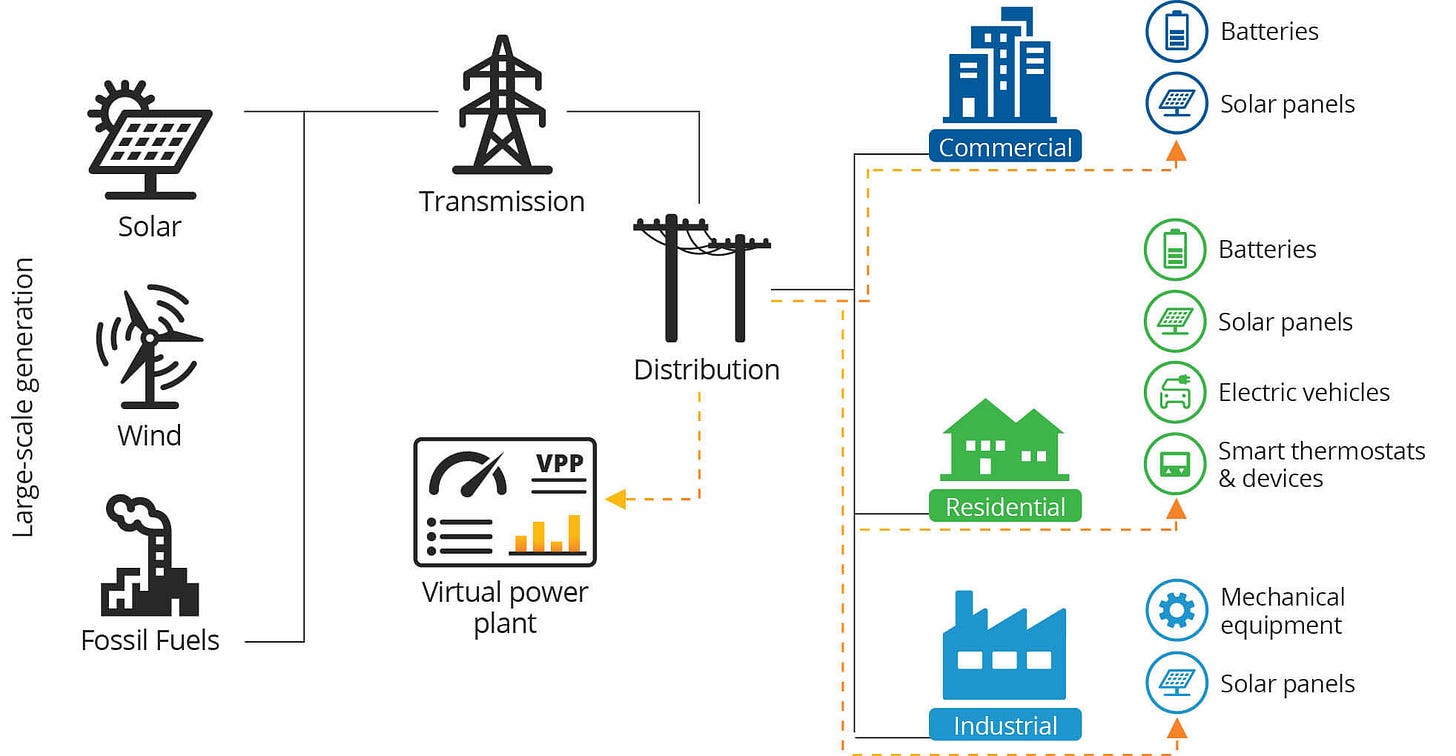
There is possibility for political alignment here. Deregulation is popular amongst Republicans, and most of the ways to make that rooftop solar cheap are deregulatory. Nobody likes a plutocrat or a monopoly right now. And one of the things that's in the way of this revolution in the US are the monopolistic utilities. They are not working in the interest of the people. They are protecting their own turf. They are part of the reason it takes 60 days to connect your solar to the grid.
So, you know, you could have a populist anti-utility campaign. You could have a deregulatory campaign. You could align your interests with the hyperscalers in doing load relief for the grid so that you make way for these other things to happen in the US economy. All of those are ways that you could lower the cost of rooftop solar.
And it's like a shark with blood, right? Once you've tasted cheap electricity, you really love it. So you just need to make this happen by any means possible in the U.S., and that may mean uncomfortable political alliances for the traditional environmental left.
When I was getting into climate activism, like 10 years ago, I feel like the general gestalt sentiment was that it would be an uphill economic push to move to renewable energy, but that with people power and mass mobilization and mass government intervention, we could make it happen.
And now it's almost the reverse. We've got active government sabotage attempts in the U.S., to an insane degree. We've got a sort of grassroots anti-renewables craziness fueled by misinformation. But the economics are so good that there's still progress happening anyway.
And we don't need to convince people to share all our beliefs in order to get them to adopt renewable energy. Like you said, we can pitch this as a deregulatory thing, as a libertarian self-sufficient home thing, as a best source of power for AIs thing.
One thing I'm really trying to do with my writing is to show people that you don't need to care about climate change to be fighting climate change anymore. All roads lead to renewables, like you're saying. You can sell people on renewables even if they don't believe in climate change or whatever, just because everyone wants cheap electricity.
Yeah. And it's not just renewables. South Korea can install nuclear power at less than one quarter the price that it costs to install nuclear power in the United States. This is a first world democracy that can make nuclear power very cheap. There's even that possibility in the U.S. All of those are opportunities.
Other things I don’t understand: when I talk to friends of mine on the political right or on the political left, no one can sufficiently explain to me why America, both sides, the only thing that is bipartisan right now is fear of China.
When the Inflation Reduction Act was written, it wasn't written with any posture that this was defensive industrial policy against China. That was a narrative that was attached to the Inflation Reduction Act after the fact.
China got started on electrification in 2014. They made it a global priority. They don't have good options to buy oil or gas from anyone. They have tons of coal but they don't have a lot of oil and gas. They don't really want to burn their coal because it led to huge air pollution problems that they had to deal with. They don't want to buy oil and gas from Russia, they don't want to buy it from Iran, they don't want to buy from America. So this is part of the reason China is going in all in on electrification. It just economically makes sense for it as policy.
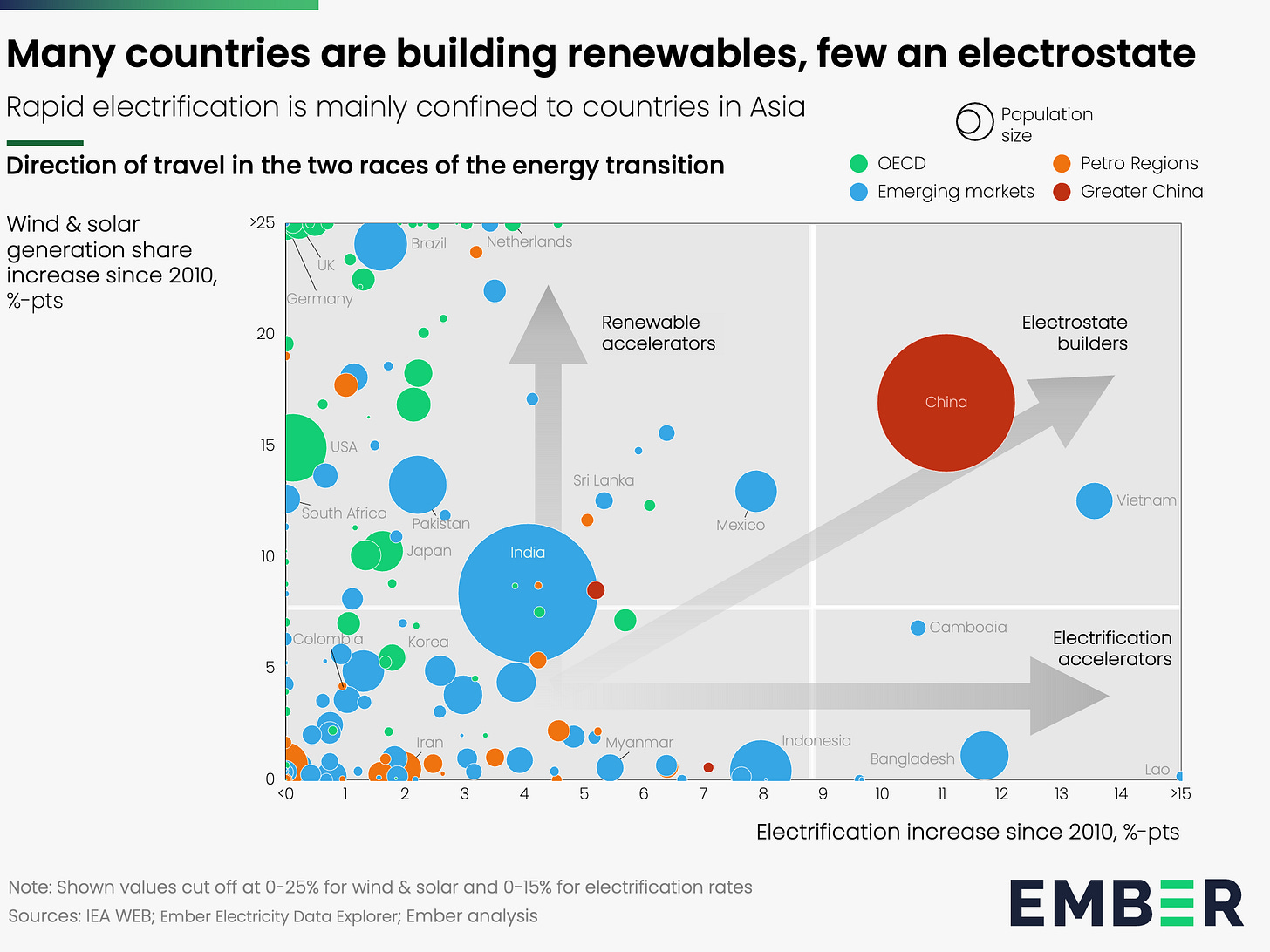
Anyway, they have a 10-year start. It became obvious after the IRA passed. “Oh, wow, shit, we weren't looking!” Because America looks inwardly too often, doesn't look outwardly often enough, China had a 10-year head start, so the IRA got [rhetorically] turned into a defensive industrial policy.
I think that's unfortunate. And that's on both sides, left and right. Most of the money, and we already said it earlier, most of the money to be made in electrification is in finance. America — maybe not anymore — used to lead the world in finance because most transactions were done in U.S. dollars. There was the opportunity for all of the money for this global electrification to be denominated and financed in U.S. dollars. And that would have been a huge economic win for the U.S.
It should have been: “There's room for China to win, then become a more advanced nation. There's room for America, when you build a lot of it, we'll build some other bits of it and we'll finance it.” You know, that was a recipe, but neither side wanted to embrace that.
I also have the worry that America is in this sort of irrational defensive war posture against China, and that that is part of the diabolical politics of American electrification.
I was in Mexico recently, and I visited a BYD dealership. The average new car price in America is around $50,000 U.S. now or something like that, and it's going to get higher because of tariffs. BYD is selling electric cars in China for, like, the equivalent of, like, $10,000 U.S.
I drive a $19,000 BYD [in Australia, which unlike the U.S. allows BYD imports]. It's basically the same. I used to have a Chevy Bolt. It's as good as the Chevy Bolt, same size as a Chevy Bolt. It was less than half the price. You can have those things!
China's going to totally eat America's lunch globally on these vehicles. And America is only making decisions that are making this worse right now.
I had hope, at least under the Biden administration, that maybe we could use this as a spur to promote U.S. electrification. Like, “Don't let China beat you on this!” But now you've got some Republicans saying that, like, solar panels are a Chinese thing.
That's like if after Sputnik, America had said, “well, space seems like a Soviet thing.”
It’s ridiculous to cede this incredible technology area to China and then reject it because China's ahead instead of trying to compete or trying to benefit from China's innovations.
Yes, obviously. America could become the hermit kingdom, right? You have enough oil and gas that you could just sell yourselves oil and gas for your giant vehicles.
Most of the roads in the rest of the world, you can't drive an F-150. They're too big. They're too wide. They don't fit in the lanes. The streets are not big enough, right? A huge portion of the cars and the trucks that you make are too big for the rest of the world.
The rest of the world can go and do this without you.
Unfortunately, it might be that Russia, Saudi Arabia, and America are the last countries burning fossil fuel. Think about the optics of that U.S. Secretary of State Marco Rubio meeting with the Russians at the palace in Saudi Arabia. These are the three largest oil and gas producers in the world. The topic of that conversation was basically “Wouldn't we all have made more money if instead of fighting against Russia we were using oil and gas together?” That was literally the topic of the conversation.
This led to extraordinary speculation in the rest of the world. I heard people say in Australia, “Do you think we will side with the Russo-American alliance or do you think we will side with China-Europe?”
For most countries in the world, the better deal is siding with China-Europe. America is making a very poor economic choice.
It really is.
It used to be, even last year, you could make a very strong pro-U.S. claim on ethical and moral grounds. “Even if China's making better, cheaper technology, at least America's standing up for democracy and human rights.” But now, not as much.
We've discussed a lot of the major things I wanted to talk about. What else would you like to share?
I mean, there's a lot of things to go here, like the role of finance. The problem with electrification is really it's the substitution of finance for fuels, right?
With the fossil fuel economy, you buy cheap machines and you feed it expensive fuel.
In an electric economy, you buy expensive machines and you feed it cheap fuel.
Now, the electric machines will save you money over time, but you need finance to afford it in the first place.
This was a huge opportunity for America. America invented the modern mortgage. It created the largest capital markets in the world. When you think about modern finance, you think about America. There was an opportunity for here for America to solve this problem. You can't solve climate change if only half of people can afford the solution, and that requires new ideas in finance.
There's still opportunity for America to innovate here, and that is a really important question. How are we going to finance this future?
It's not how everyone frames it, like, “How much does climate solving climate cost?” It's going to save us money. That is now obvious and clear. The question is, will we conceive of finance that lets us do it in time?
Other uncomfortable truths. The climate movement's passion comes from young people, but the decisions that make a life zero-emission are buying an electric car, installing electric appliances in a house, and buying solar. These are decisions that are not made by 20-year-olds. It’s 40 year olds who buy new cars and have homes that they need to electrify, so there's a conflict between the passion of the environmental movement and the economic stakeholders in the solution set.
Right.
And it's even worse in industry. 60-year-old white men sit on the board of the industries and they're presiding over the decisions to change a blast furnace for an electric arc furnace, et cetera, et cetera. All of the electrification of industry.
So, I believe there are interesting questions in this. How do you keep the climate movement young and motivated when the technical solutions skew towards control from the older half of the population? These are future things that I will write about. I think there's a lot of places you can go from here.
That's very interesting.
Anything else you’d like to share?
There is an enormous amount of solar capacity there in the U.S to be built out. Commercial, residential, even in places like parking lots. There's somewhere between 2 billion and 20 billion parking spaces in the U.S. You could have solar on all of those!
I mean, think about it. Instead of tiptoeing across the burning hot asphalt at a Walmart in New Mexico, you could be under a shaded parking structure that's all solar that's making extremely cheap electricity for that community, right?
Thank you so much for all the amazing work you've done.
Thank you very much.






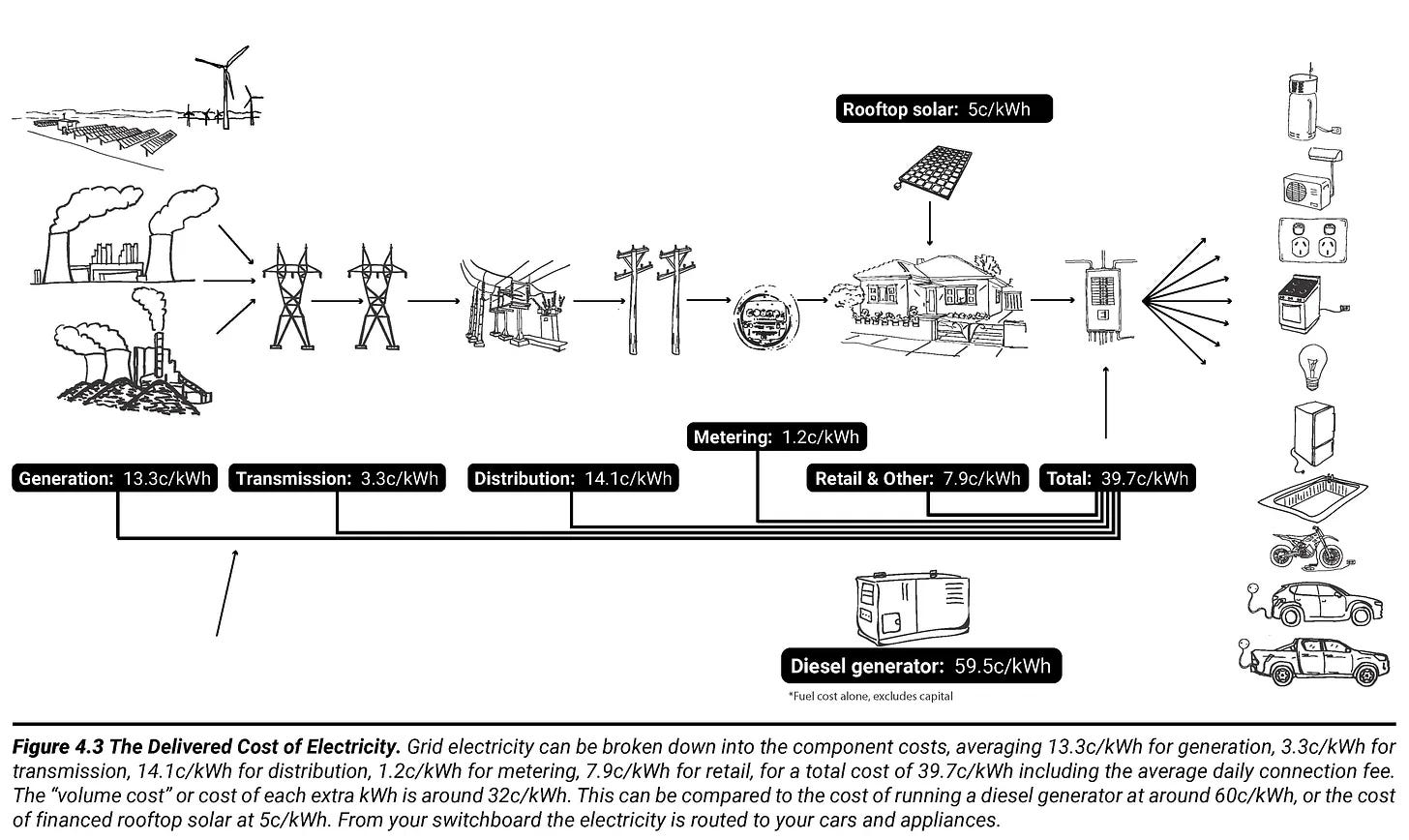

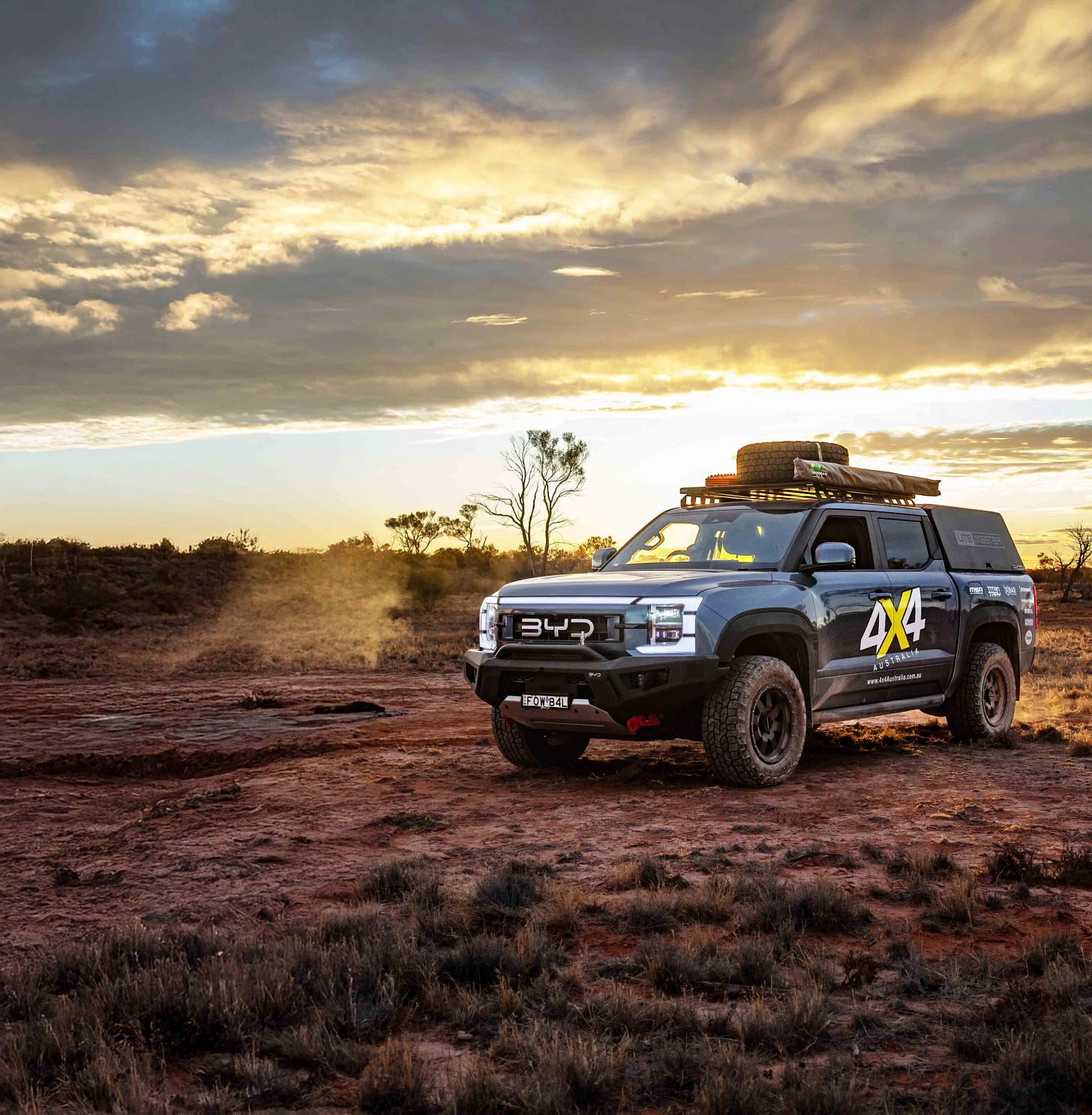
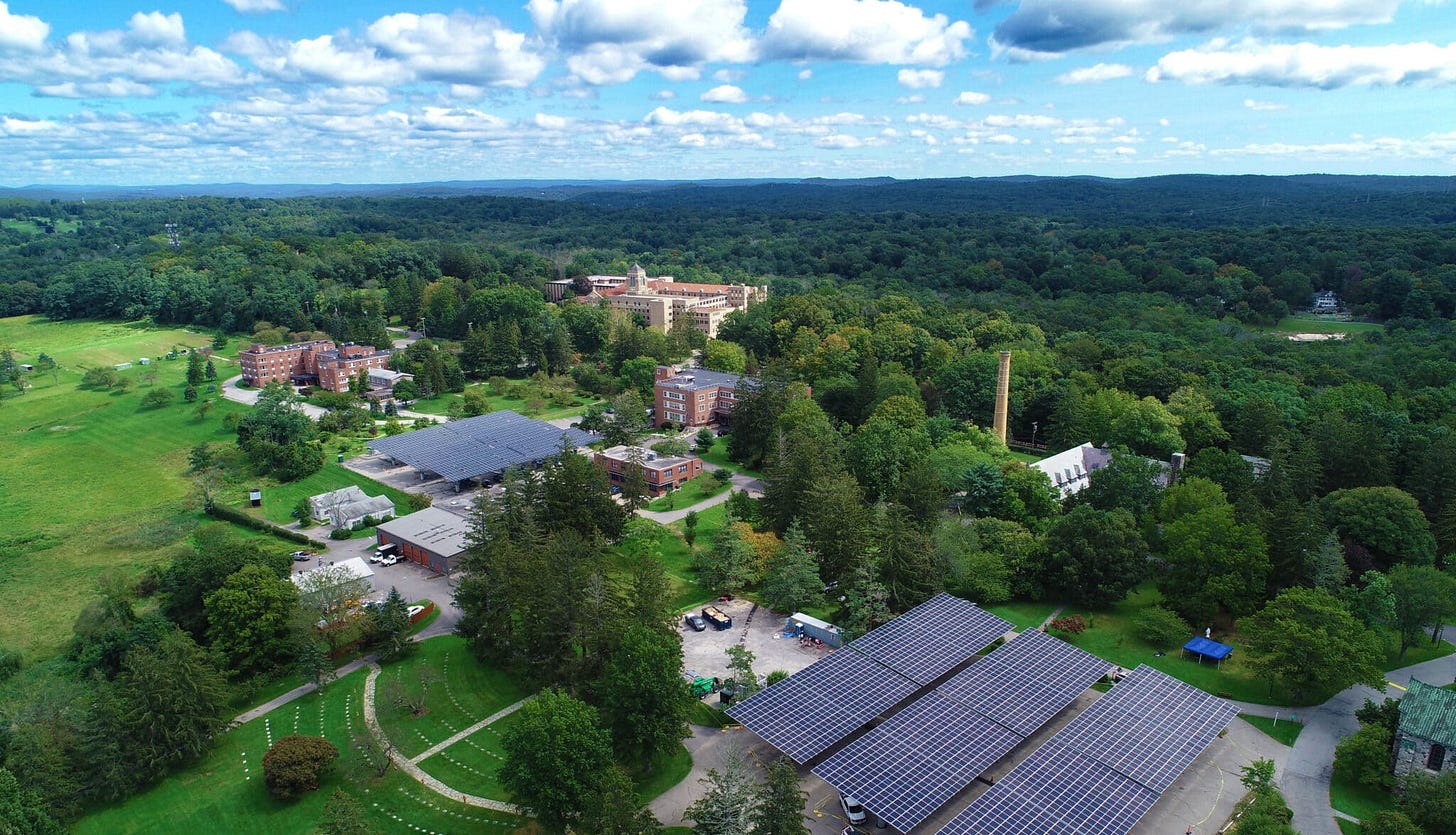

Interesting conversation. Thanks. If many homes in Australia have not yet installed batteries and these homes are feeding electricity onto the grid during the day, how do utilities deal with this? Do the utilities have sufficient batteries to store this electricity? Or can the utilities reduce base load electricity production (ie from gas turbines) to balance supply and demand? I have read that it can be very difficult for utilities to respond to fluctuations in electricity production from solar and wind because electricity production from solar and wind can change suddenly due to the variability of sunshine and wind. This puts stress on the grid and affects the reliability of the grid. This is worrisome for those of us living in areas where the temperatures can get -30F during the winter.
Excellent thread, thank you.